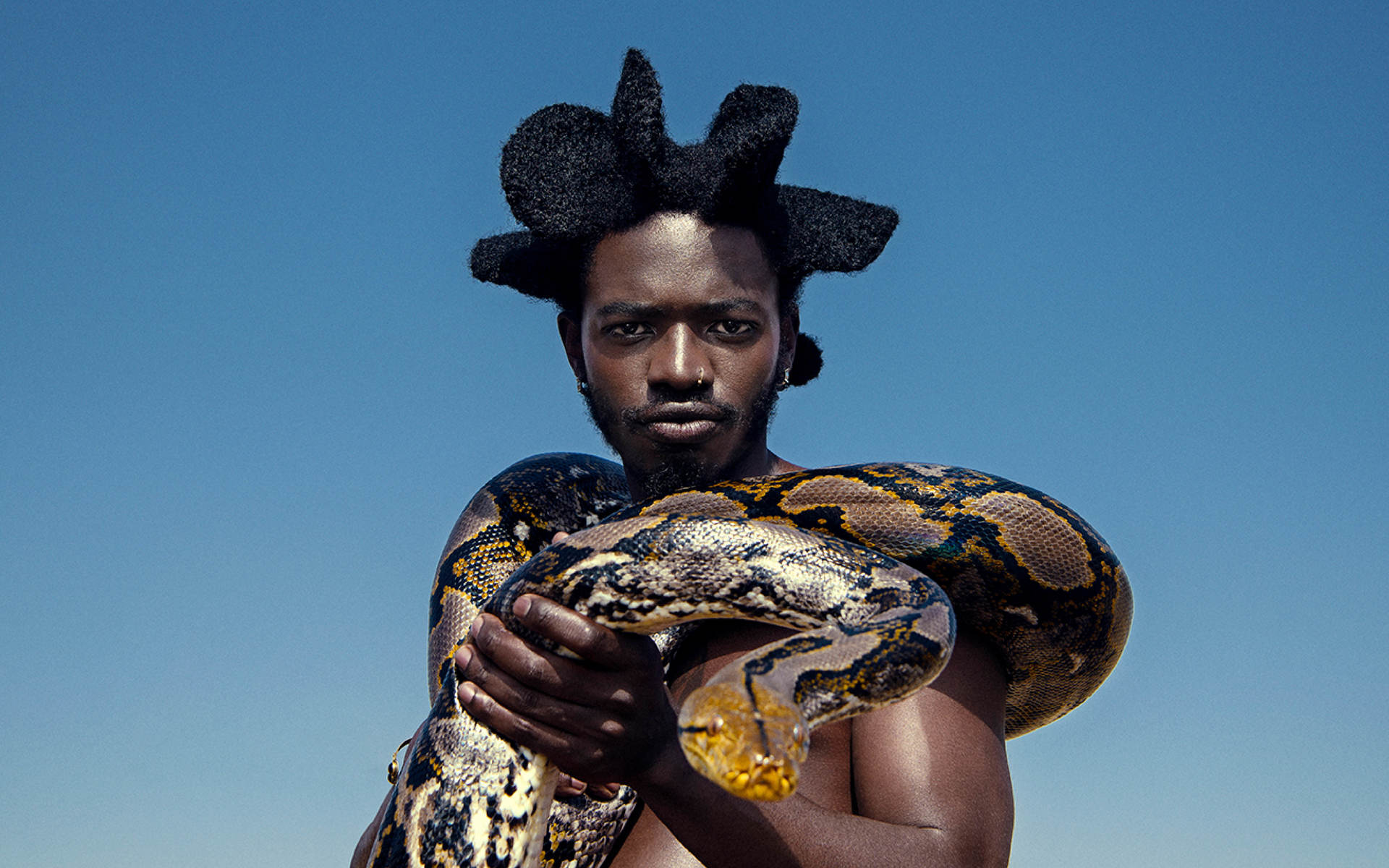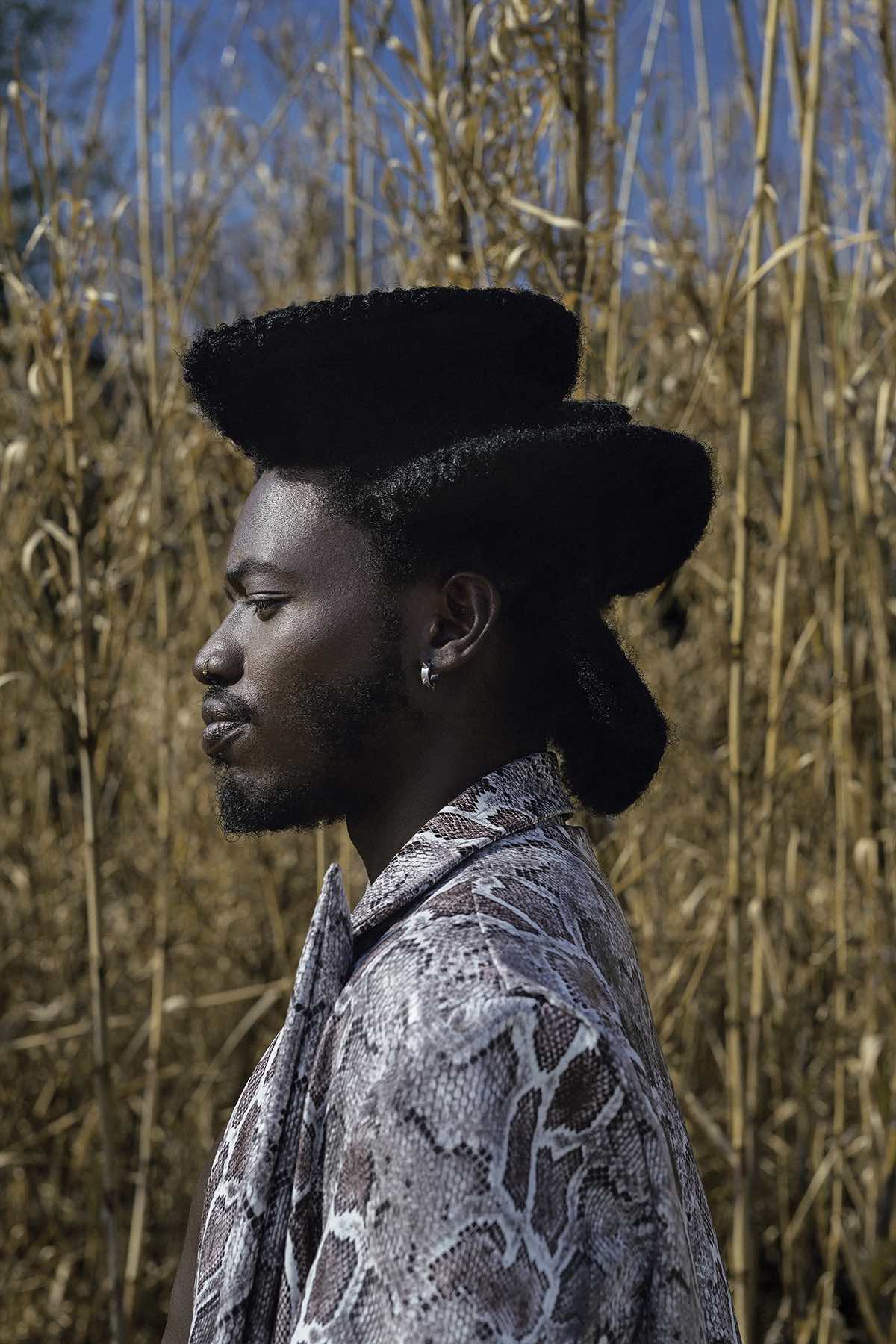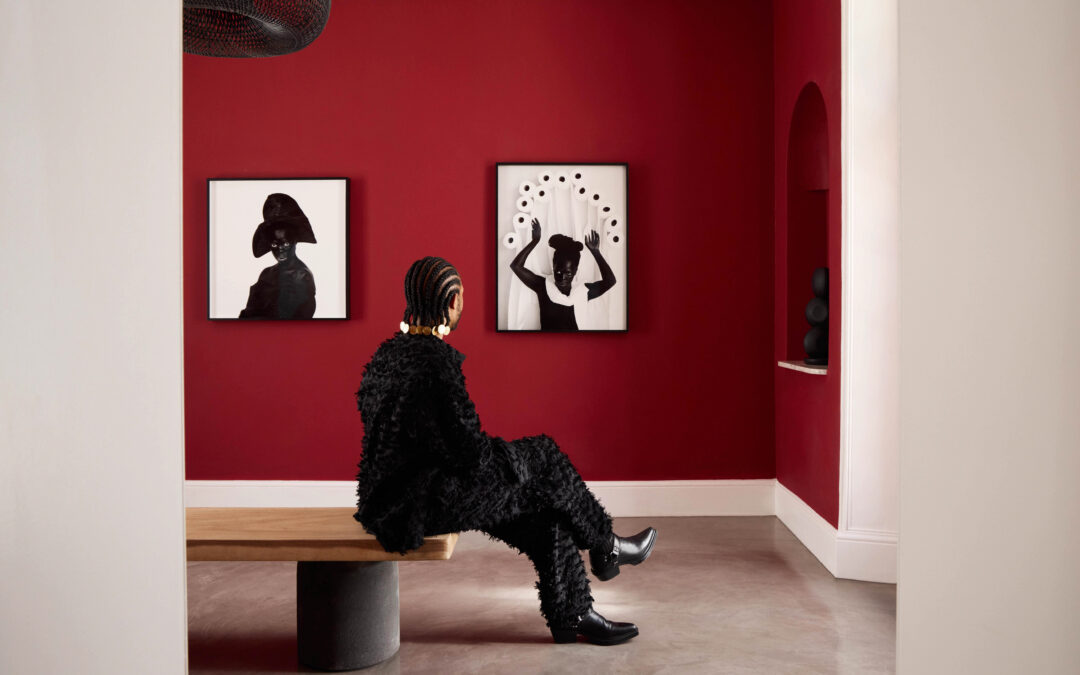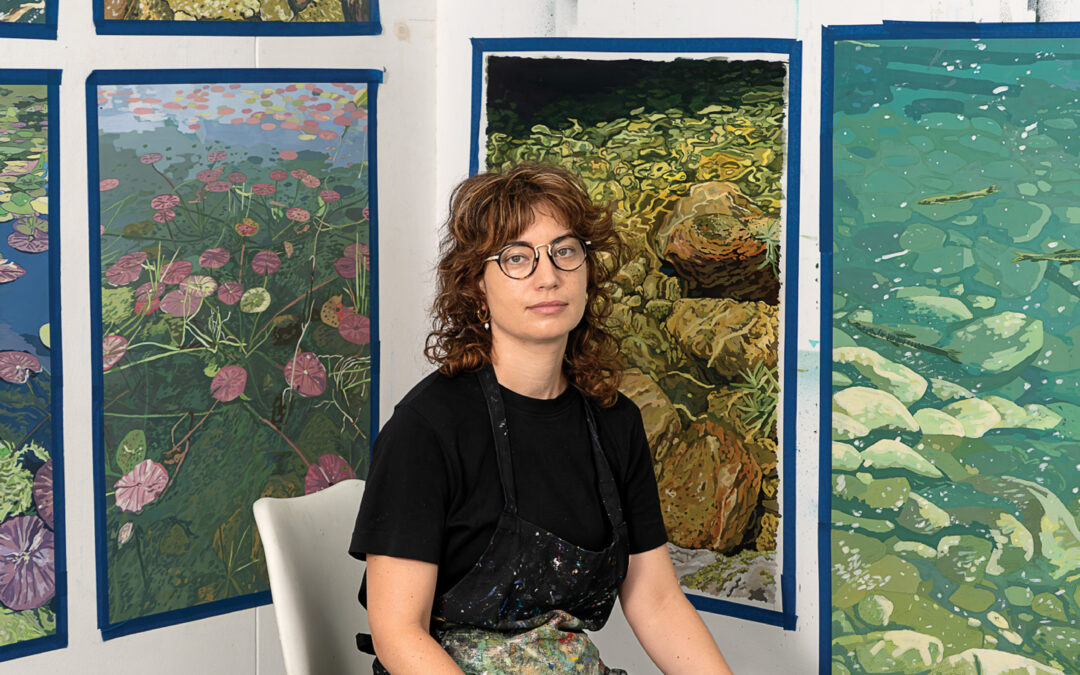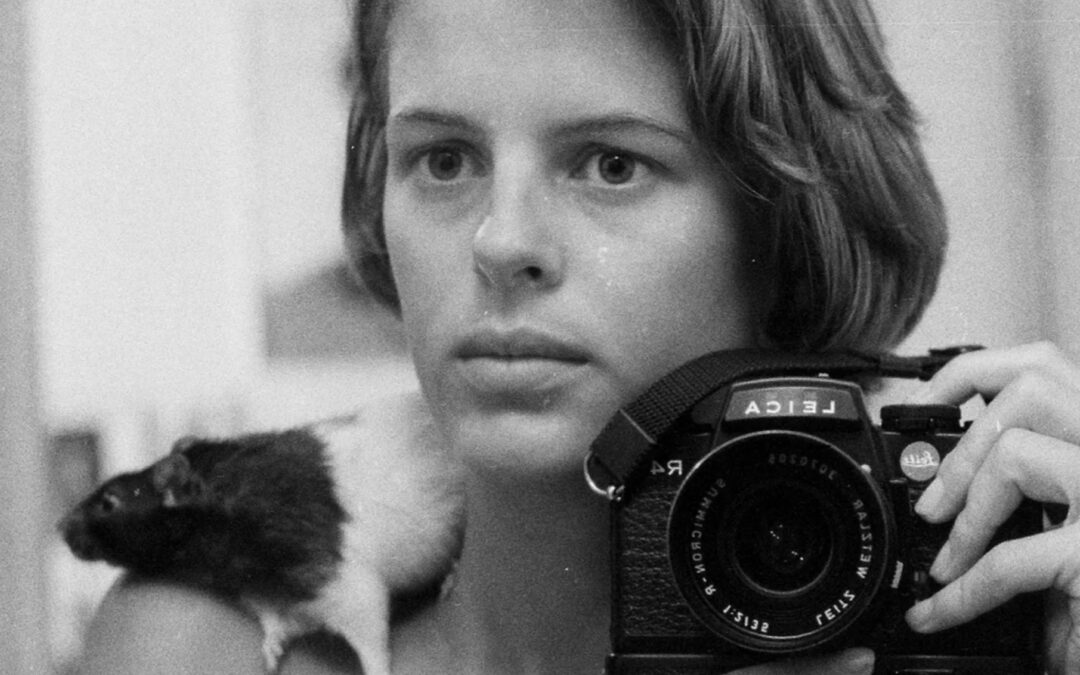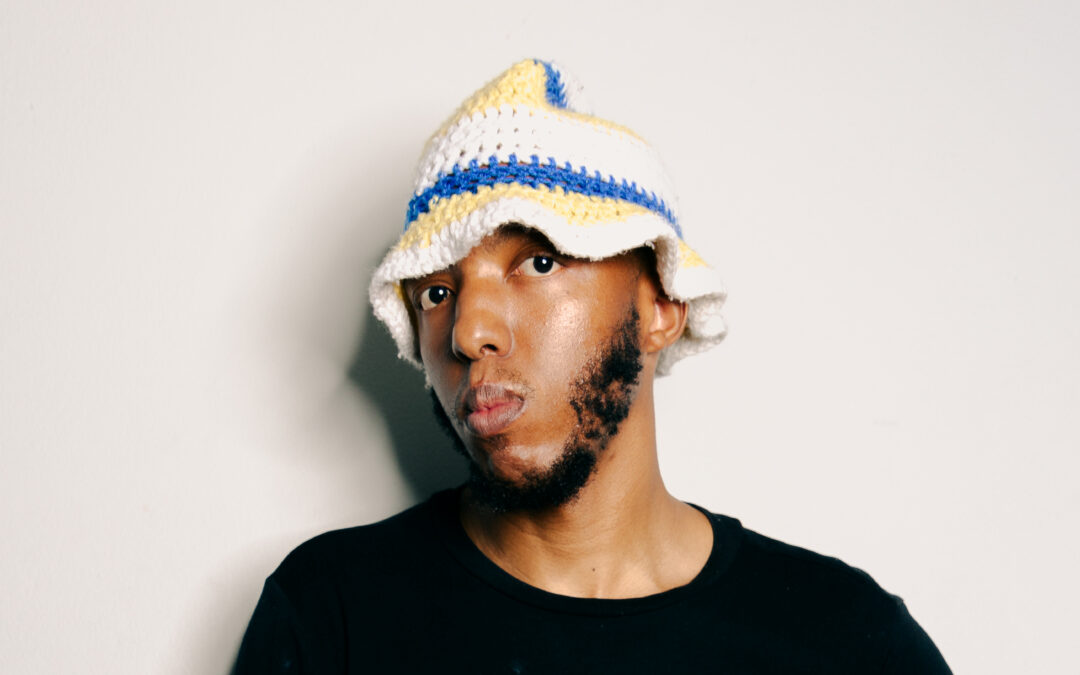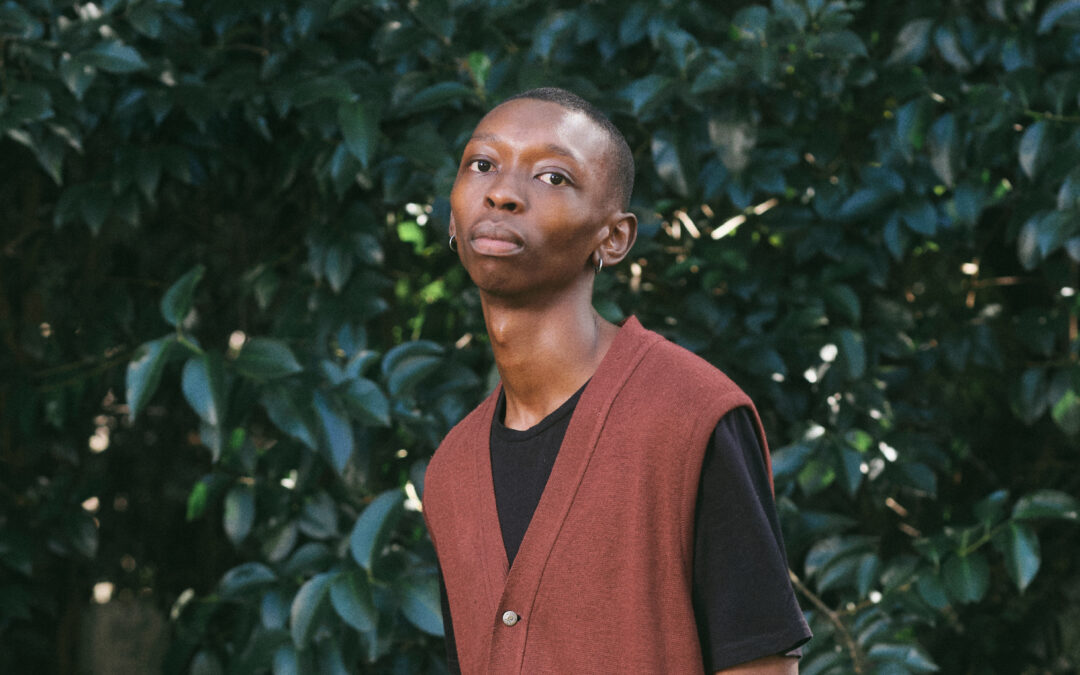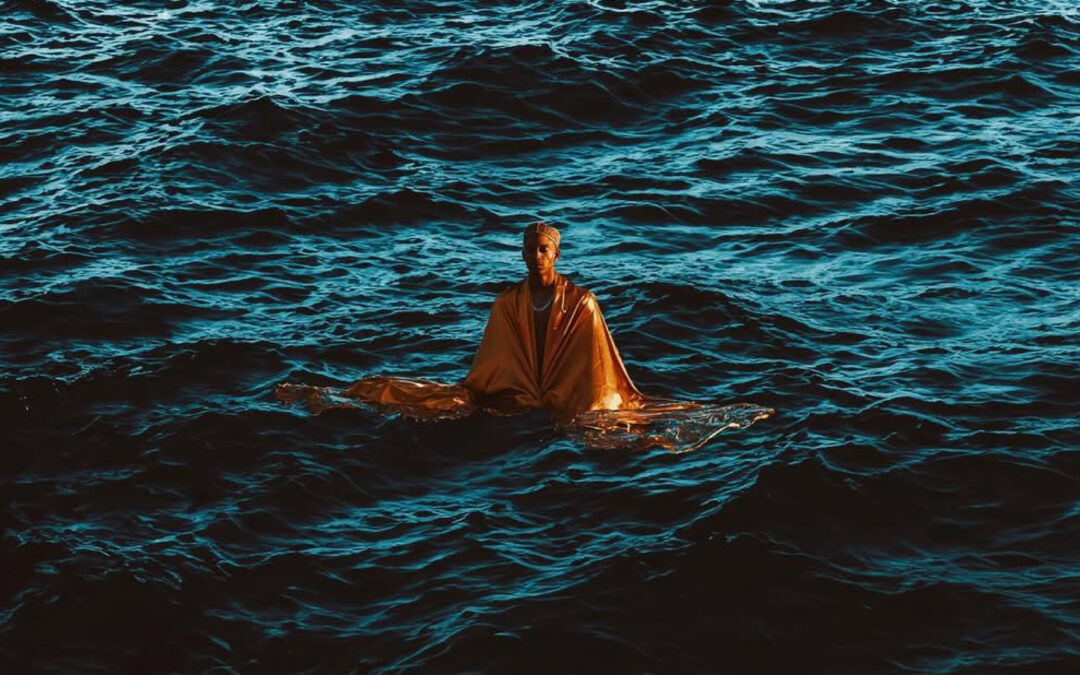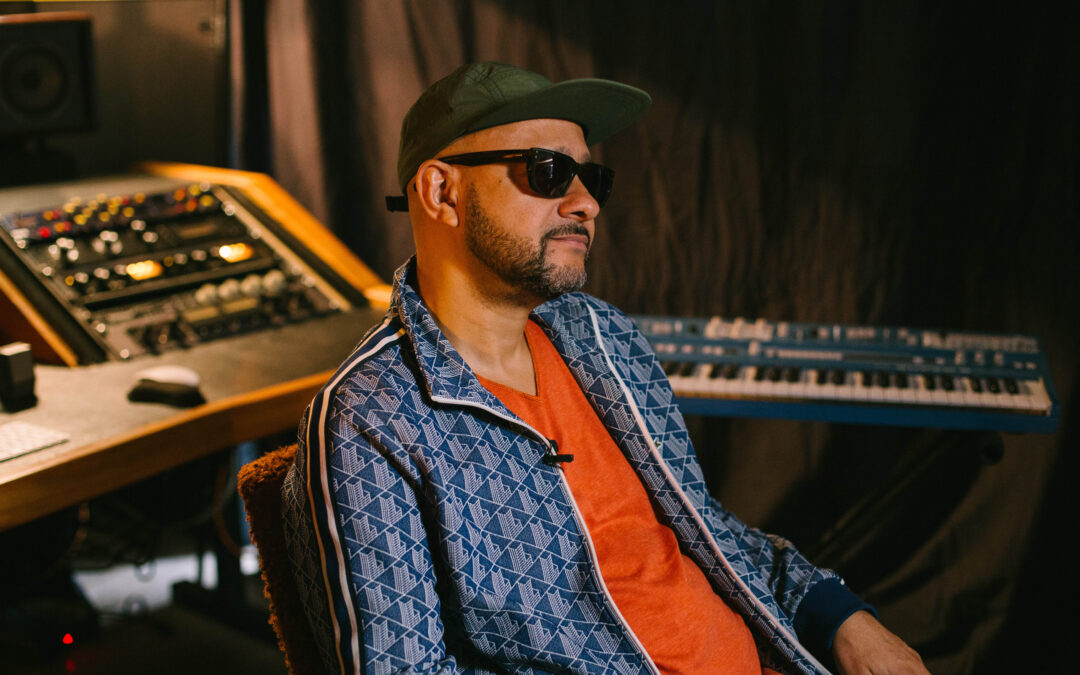Here’s the thing about history: it is elusive and, at the same time, has a funny way of catching up to the present. Conversely, history has a jarring relationship with one of its most fearsome foes: erasure. How society defines the coming-of-age transition into Queer identity as “coming out of the closet” in and of itself establishes the violence bestowed upon queer bodies who are forced to hide their expression of self and romantic love. For multidisciplinary, award-winning, avant-garde post-industrial, art rock, club music, pop, and electro music experimentalist, Desire Marea, calling history to order and filling in the gaps of understanding some of the missing subtexts of history, particularly queer history, has been a mission of insurmountable importance.
Desire Marea, born Buyani Duma, is a multitalented South African artist whose work spans various mediums, including performance art, music, and visual arts. With a background in Performing Arts and Visual Communications, Marea embarked on a journey at a young age that has seen him explore diverse artistic expressions over the years.
A pivotal element of Desire’s growth lies in the spiritual realm, where he spent two years training to become a sangoma (traditional Nguni healer), which not only influenced a change in his personhood considering the responsibility he now carries for the energies from lineages from any environment he comes into contact with, but his spiritual transformation charged a more intimate and ethereal approach to his music. Essential to his craft, Marea doesn’t create without taking the time to honour the ancestors and invite them into the creative process. You can hear it reverberating through his earthly yet multidimensional offerings that Marea spends considerable time in intimate connection with nature and ether, and he views himself as a vessel of divine communication.
From our conversation, which explored the loneliness, trauma, displacement and the othering of his sexuality, I gained a different perspective; one where queer bodies existed in our ancient past but were erased from the whispers of history for often nefarious reasons. For instance, when I explore how the foundational influence of South African music references shapes Desire’s approach to songwriting, particularly in how he uses direct narratives—addressing both first and third persons in his songs—without relying heavily on metaphors, yet maintaining a universal appeal, he shares:
“I’ve consciously chosen to approach my music with directness and personal honesty, especially evident in my last two records. As queer musicians, there’s often pressure to convey our experiences through allegory or overt statements. For me, every expression I make is inherently a statement because being true to my black queer experience inherently challenges societal norms. Reflecting on touring with FAKA, where we were often boxed as a black queer activist artists where very few really engaged the substance in our work, I decided to steer my songwriting towards humanising myself and my queer experience. This approach risks losing some relatability, but I hope it encourages others to embrace their own nuanced truths. By doing so, we can authentically share our stories and foster genuine change, rather than merely making broad political statements devoid of the human complexity that makes them meaningful.”
Getting to understand Desire as a bold, fabulous, considered and intentional personality was one thing, but considering the existence of queer life that predates modern civil society was audacious, to say the least, jarring even. With my first impression of Desire being eccentric in his sonic curation and lyrical musings, I was expecting a whimsical conversation, and that is precisely what I got. Our frequency was balanced; we created a safe space for each other and held space for us to share our perspectives on issues that affect the feminine and the masculine.
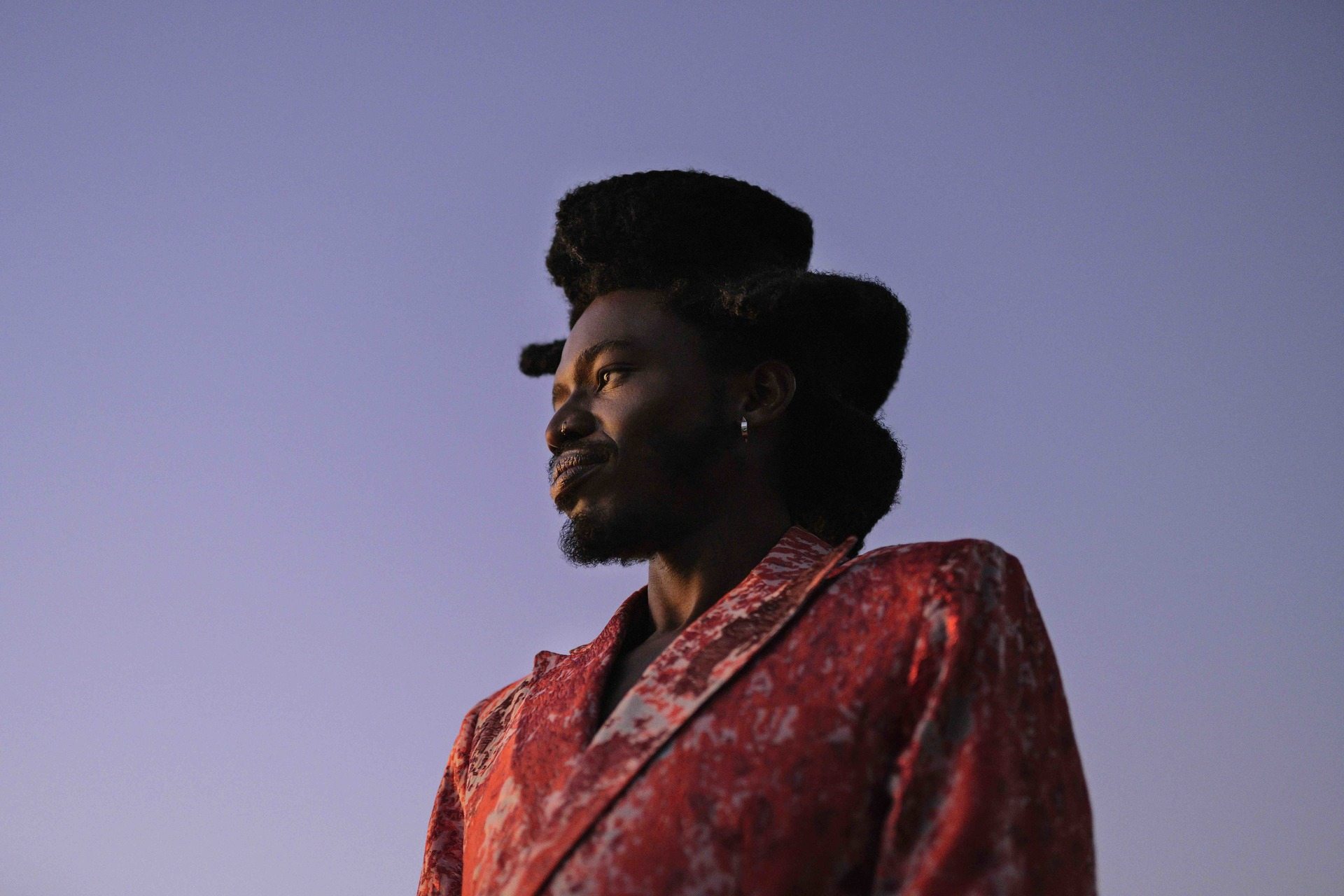
Desire Marea photographed by Tatenda Chidora
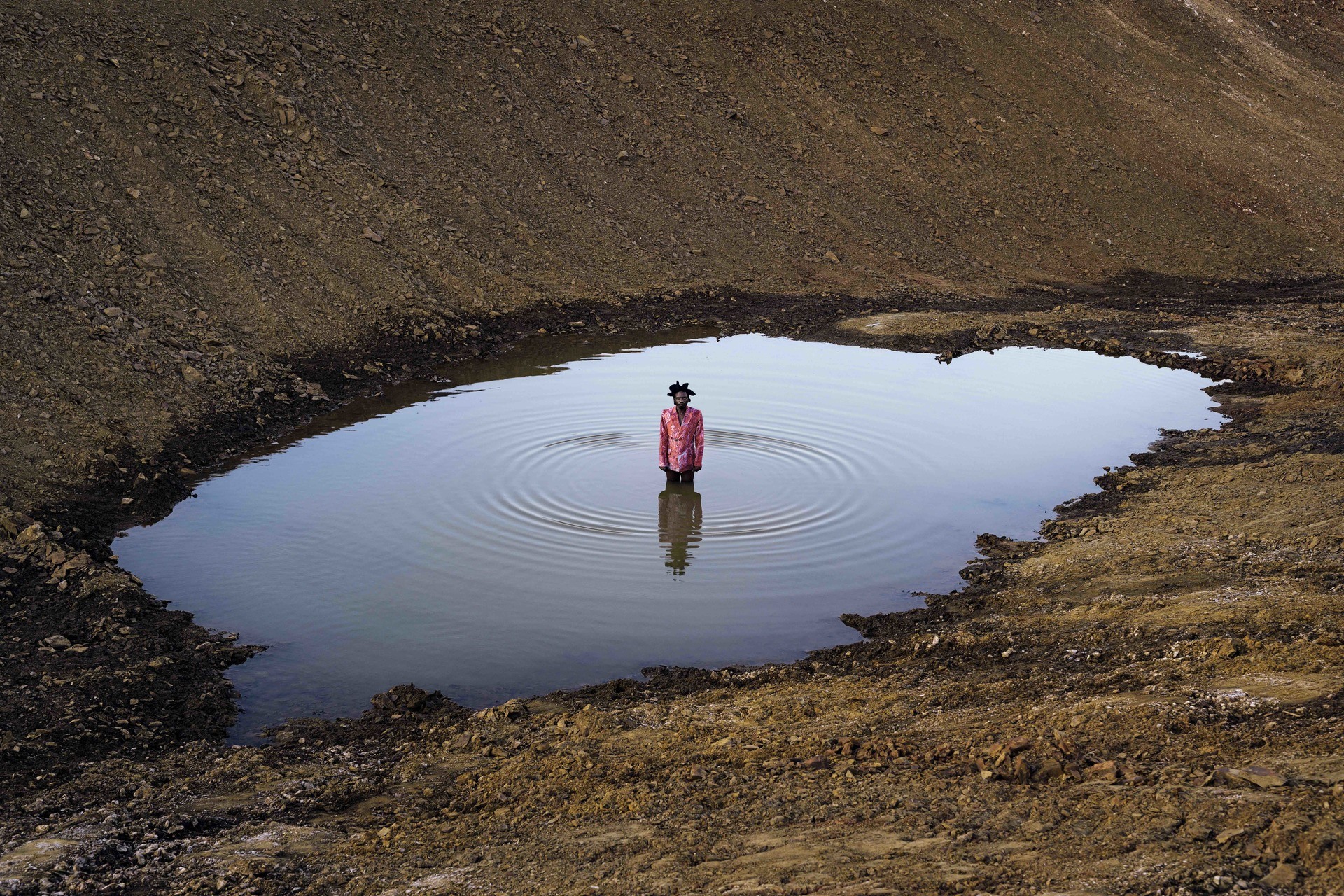
We explored why masculine expression is often suppressed and only ever performed through acts of violence and aggression and furthermore, we ponder the length and quality of life, especially if we are careless about our mental and emotional well-being. I asked Desire if, as the masculine, we allowed ourselves to access the entire pool of emotions, balancing our being with the feminine back in colonial and pre-colonial times, would we lived a longer, better quality of life, to which he answered:
“I’m not sure if it would have made us live longer, but I believe we would have a healthier society. When you erase or distort parts of history, even the descendants of those historical figures end up with a warped perception of their heritage. For instance, many Zulu men might think that being descendants of warriors means they have to be violent, including violence against women, queer, and trans people. This misunderstanding shows they’ve lost touch with their true identity. As warriors, our role was to defend ourselves and our community, not to attack. We protected our own; we didn’t initiate conflict.”
There was a magic to it, challenging to explain, being open and honest about how we are evolving and redefining masculinity by opening portals to explore what lies inside this strange Pandora’s Box we call feelings. This is my first time doing something of this nature and sharing soft, intellectual, passionate conversations with another man who affirms that it is okay to express myself and have feelings. How do I say it was intriguing to explore the why behind his visual art, for him to use it to imagine and take an interest in others, especially in making their masculinity intimate? I’ve never considered that, though I can boldly say I am in a relationship that is a safe space for my emotions; there was something in exploring the why behind Desires art.
I was honoured to explore “On The Romance of Being”, “The Baddies of Isandlwana,” Desire’s upbringing, his approach to male intimacy in visual art, and more. I hope it was as enlightening as it was a purge for me.
Please take me through growing up and how you found your calling in music?
Desire Marea: “Growing up in a town called Amandawe, my first passion was visual arts. I used to draw on the walls at home and often got reprimanded for it. When I first learned what an artist was, I knew I wanted to be one for the rest of my life. This realisation also led me to discover who my father was—a renowned artist from Durban. So, I didn’t find the calling; I genuinely believe I was born with it.
I’ve been fortunate enough to traverse different disciplines over the years and find my voice in them, most recently in music. Before that, it was acting and performing. My relationship with the arts is always rooted in expression and purpose, regardless of the discipline.
Acting came first for me while I was still in high school. I acted in a movie called Disgrace, based on the novel by J.M. Coetzee, which won a Nobel Prize. The film starred John Malkovich and local talent Jessica Haines. That was a highlight of my early career. However, my acting career didn’t take off due to the lack of roles for teenagers, especially for a dark-skinned teenager like me. Many child actors were light-skinned, and I was often typecast as a disturbed or impoverished child. For example, I played Sbonelo, a bully in the Soul Buddyz series, for one season. The colourism in the industry affected me a lot at that age.
Eventually, I developed an interest in fashion, which coincided with my journey into my queer identity. Fashion played a significant role in affirming my identity. I studied fashion design during this time, although I didn’t complete the course. Through this, I met close friends and did a stint in advertising as a copywriter and sometimes as a graphic designer. Eventually, my music career took off, allowing me to quit my day job and focus on my solo projects.”
Your work often blends traditional Zulu elements with modern genres like electro and experimental pop. What is the significance of this fusion, and how does it reflect your identity and experiences?
Desire Marea: “Such a beautiful question. I’ll start by saying this: with the music that I make, the level of experimentation is quite significant. Often, I’m compared to musicians from the West, some of whom I have never even listened to before, this happens a lot in articles written about me.
I love that you mention my traditional influences because all my references are South African. I’m deeply inspired by the church, which was my first experience of music that is alive, thriving in a room full of people. This is something I truly love. I’m also influenced by Kwaito and House music, especially Tribal House Music from the late 90s and early 2000s, produced by many talented producers from that era. One hero from that time would be Culoe De Song, among others. I also take a liking to the impact of Gqom in my personal space.
Additionally, I have many global influences, primarily from my peers. I’ve admired those creating deconstructed club music, like Chino Amobi, Angel-Ho, NON-Records, and PC Music. These artists pull from archives, sampling various sounds to make socio-political statements, and their use of sound and referencing has really inspired me. They’re not just referencing a single thing; they’re creating a sound that is all-encompassing yet sharp. On a global scale, these are my references, and many of them are young people of colour from the diaspora and some from Africa as well.
My purpose with music is always to strive for excellence. Sometimes, it’s successful, sometimes not, but that is always my intention. I believe it’s a good investment because it ensures I make a meaningful contribution to South African music. We come from a lineage of truly excellent musicians, so for me, that is a priority. Another priority is for my music to be real, honest, and a true reflection of my experiences and those of others.”
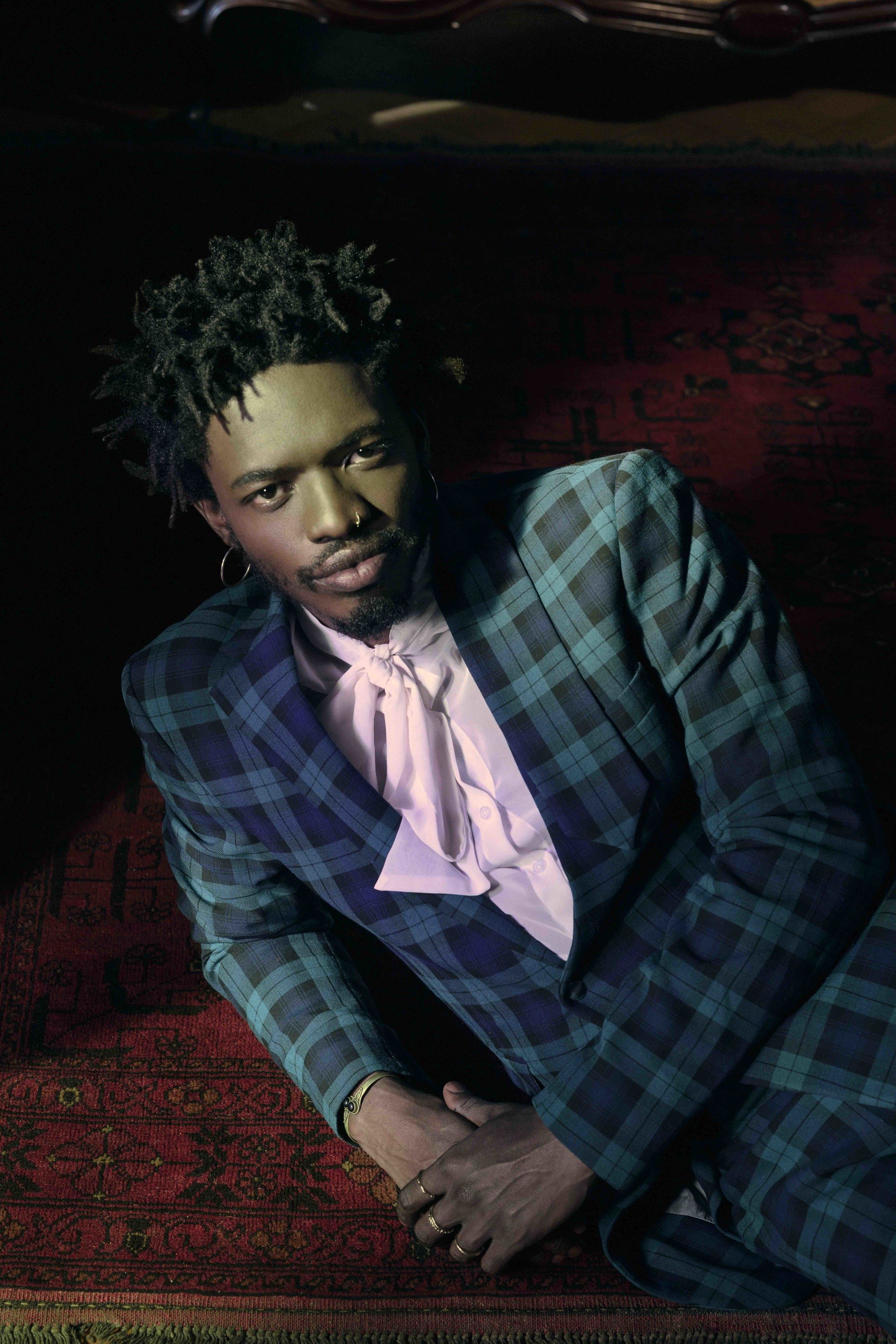
Desire Marea photographed by Tatenda Chidora
The EP, “The Baddies of Isandlwana”, explores queer narratives in the context of the Anglo-Zulu War. What inspired you to delve into this specific historical event, and what message or perspective did you aim to convey?
Desire Marea: “The message I wanted to convey with my songs is rooted in my experiences in a rural town in Kwa-Zulu Natal. I kept thinking about my complex experiences and realised there must have been others before me with similar stories. I wondered about the existence of queer people in the past, especially before colonial times. How did they live and express their identities?
I drew parallels between my experiences and those of people from history. This EP is not based on one specific historical moment, but I enjoyed the wordplay in “The Battle of Isandlwana” and “The Baddies of Isandlwana.” The symbolism of Isandlwana resonates with me because it represents conflict and colonialism. This conflict often led people to abandon their true selves and queer identities, which were not always seen as negative. We had our own language and ways to understand it.
With this EP, I aimed to create an ode to resistance and highlight the enduring spirit of resistance through the years. It reminds me that I’m not the first to face these challenges. Queer people have existed and resisted throughout history. Many of us today carry their spirit, and it’s comforting to know and connect with that legacy.”
Doesn’t it become draining to carry the burdens of past generations, especially when they expect you to solve their unresolved challenges before you transition into a spiritual self?
Desire Marea: “It does! It has been the heaviest and most challenging experience of my life, and it continues to be ongoing. It goes beyond “The Baddies of Isandlwana” but my experience as a black person and a sangoma. My journey involves navigating a multitude of spiritual presences. Many of these spirits guide and bless me, supporting the work I do. However, this path also means I have numerous responsibilities to fulfil, both to my colleagues and to the calling of my creative work. Responding to these calls, whether in music or visual arts, comes with its own unique challenges and purpose.
I don’t want to sound like I’m complaining, though. This way of life is profoundly meaningful to me. Feeling connected to the spirits guiding me is a blessing. Knowing that those who came before me paved the way and that future generations will continue this legacy gives me a strong foundation for growth. It’s what keeps me grounded, even though it’s incredibly tough.
As a queer artist, how do you navigate identity, representation, and societal norms within your work, particularly in the context of traditional Nguni spirituality?
Desire Marea: “For me, a lot of it is about language. When I say language, I don’t necessarily mean the spoken word. It’s about the language I use to perceive myself. I think that’s foundational because it’s incredibly powerful. English is a beautiful language with a lot of words to make sense of different experiences, and it has helped us understand our lives in many ways. However, I need to think in my own language. That influences how I express myself, even if it’s not always apparent. It’s about answering the question “Who am I?” ngesiZulu and what that means, and it affects everything, including all my choices.”
One of those linguistic expressions we find in offerings such as “On The Romance of Being”, where you operate as someone operating across avant-garde, spiritual, and pop realms; how do you navigate and blend these spheres in your creative process?
Desire Marea: Music is incredibly multi-dimensional. For our album, we aimed to explore diverse influences without relying heavily on samples. Collaborating with Sanele Ngubane and Thuthuka Sibisi as co-producers and Izimakade on the unsanded elements was crucial. Each song was crafted to unfold with distinct moments and varied sections, almost like different songs within a single track. We focused on delivering each phrase and movement with unwavering conviction. Linguistically, our goal was to infuse the record with conviction and duality. Some songs blend Zulu and English, chosen deliberately to match the message’s essence. Beyond lyrical language, we also carefully selected instruments to enhance each sonic moment, resulting in radical shifts and transitions throughout the album. Our aim was for every moment to resonate with the authenticity of a true voice.
How did the holistic experience of creating this album help you find its true voice and your own? How did this process impact your personal growth, especially considering it happened during a transitional period in your life?
Desire Marea: “What really helped me find my voice was what came before the recording of that album—my initiation. The album is titled “On the Romance of Being” because, in a sense, I had just facilitated my own rebirth. Everything felt new, and I perceived things differently during that time. When everything feels new, the little things become important. The stories we tell aren’t grand; they’re about everyday occurrences. It could be something as simple as a text message or a WhatsApp conversation, but romanticised so much, and we haven’t finished it because it’s so important. This is what spirituality has taught me—to embellish every moment and make it meaningful. People die, and people connect with each other. There are songs for everything, and it’s a culture of romanticising life—it’s the greatest thing ever. I believe this deeply resonates with our band’s heritage.”
Your work has been celebrated for its celebration of African art heritage and queer visibility. What role does your art play in fostering greater understanding and representation within South African society and beyond?
Desire Marea: “In my visual art, I’m exploring the idea of queer Zulu people and queer masculinity from a historical perspective. My current series delves into this theme, particularly focusing on the concept of “amabutho”, which represents warriors and a certain kind of masculinity. I’m interested in locating queer individuals within that historical tension and role. Throughout my series, I’m constantly contemplating the eroticism present in these identities. I’m striving to create a vernacular that invites viewers to envision a moment that could have existed rather than resizing or altering history. I aim to express softness and tenderness, bringing life to these often erased figures. People from 1601 and similar periods have been largely removed from our visual landscapes. For me, imagining these erased identities is powerful and important. This imaginative process allows us to connect with and feel the presence of these individuals. It’s crucial for us to reclaim and reimagine our representation. Through my work, I aim to continue this occupation of changing and enriching our visual history.”
I’ve also developed an appreciation for the display of male intimacy in your paintings. Why is it essential for you to direct a warrior tone into the subjects who display intimacy?
Desire Marea: “Beyond the homoerotic, war is profoundly intimate—a journey of days spent sleeping under the stars, traversing mountains, and standing in battle alongside beloved comrades. The bonds forged were deep, a commitment to risking one’s life for fellow warriors, their families, and future generations—an undeniable act of love, irrespective of physical relationships. It’s crucial to clarify that this doesn’t justify violence; instead, it illuminates the depth of these connections. Many African mythologies intertwine gods of war and sexuality, underscoring a complex relationship between these domains. This duality is compelling, hinting at something inherently erotic yet profound in its symbolism. It challenges conventional views of African masculinity, offering a nuanced perspective on ancient archetypes. Celebrating this archetype is pivotal—it subverts stereotypes, revealing a facet of masculinity often overlooked or misunderstood. It speaks to a time when such roles were both challenging and revered, enriching our understanding of cultural narratives.”
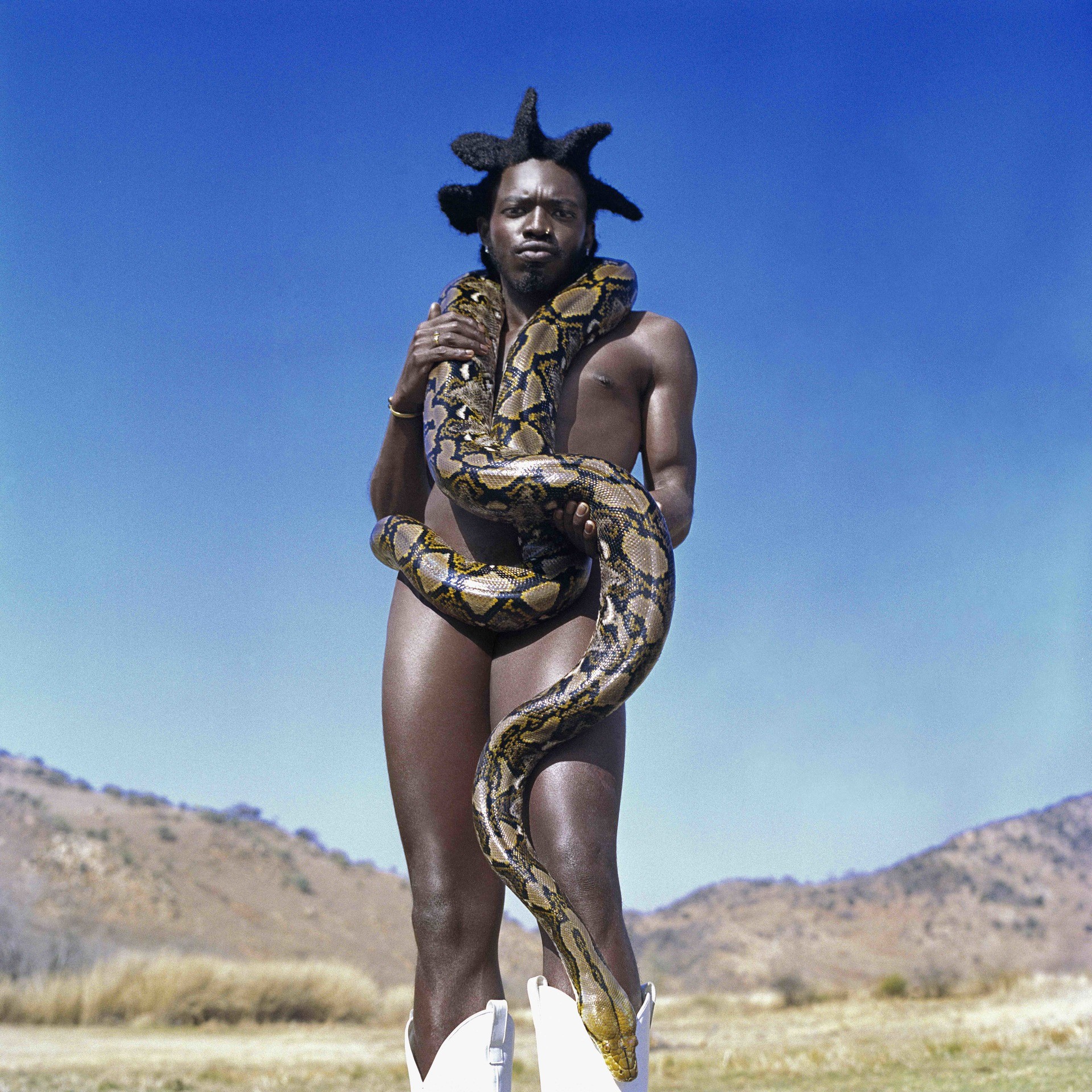
Desire Marea photographed by Tatenda Chidora
Thank you for joining us for this conversation. Before you leave, please let us know what the future holds for you; what can we expect from the creative universe of Desire?
Desire Marea: “I’m currently in a reflective phase. The music industry emphasises self-promotion and visibility, which can be both motivating and superficial. Finding my path involved focusing on my craft, stepping outside my comfort zone, and exploring different artistic visions. Visual art, in particular, offers a unique platform for self-expression and creativity. My journey has been cultivating my artistry and connecting with others who share a passion for meaningful work. I’m intimately interested in people.”
It’s surreal when you consider that in the interconnected nuances that allow us to share the same planet and its resources, a little over 8 billion people on the earth have a history and life as complicated as yours. For Buyani, who continues to shake the status quo as Desire, his history is as much about reclamation as it is about pushing the needle forward. Due to the reverence we as a people hold for the forces which guide our spiritual evolutions, there is a sensitivity with which we must carry and translate the forgotten messages and passages from our lineages that have been lost to the ether. Desire Marea is the epitome of fearless, passionate, considerate and contemplative about the depths of his talents, and that, for me, is why his name will echo through the chambers of fine art, music, fashion, acting, and every discipline akin to how he communicates with his community.
Connect With Desire Marea
Instagram: @desiremarea
X (formerly Twitter): @desiremarea
Facebook: @desiremarea
YouTube: @TheBuyani
An overview of Desire’s music career by Cedric Dladla:
In 2015, Marea formed the queer performance art duo FAKA with Thato Ramaisa, releasing their debut EP “Bottoms Revenge” in 2016. Their subsequent release, “Amaqhawe,” in 2017, showcased a more club-ready sound influenced by the South African gqom scene. FAKA’s performances at various festivals, including MELT!, Roskilde, and Sonar, as well as their contributions to fashion shows and the Africa Express album “Egoli,” further cemented their presence in the art world.
Marea’s solo career took flight in 2020 with the release of his debut album, “Desire,” on Izimakade Records. The enchanting singles “You Think I’m Horny” and “Tavern Kween” showcased his nearly operatic vocals, blending English and Zulu, and the album’s tracks ranged from sophisticated art pop to noisy IDM.
In 2023, Marea released his second album, “On The Romance of Being,” recorded with a live band, including noted jazz musicians Sibusiso Mashiloane and Sbu Zondi. The album’s lyrics explored spiritual, romantic, and sexual themes, earning him the Best Alternative Album award at the 29th South African Music Awards ceremony. Later in 2023, Marea unveiled the EP “The Baddies of Isandlwana,” delving into queer complexities within the context of the Anglo-Boer war, further showcasing his artistic depth and versatility.
Written by: Cedric Dladla
For more news, visit the Connect Everything Collective homepage www.ceconline.co.za

